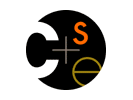|
|
|
 |
|
Course Structure
|
|
|
Basic Math
|
|
|
There will be one assignment for the course where you have to design an acoustic communication system on
an android phone. The purpose of the assignment is three fold
- Learn Android programming
- Familiarize with sensors in devices
- Learn to establish communication channel
Android phones will be provided and the complete details of the assignment will be posted.
The major part of the course will be a course project done in teams of two. Each team should propose
a course project. We welcome projects that apply networking concepts to your field of expertise. We will
have one/two meetings to discuss and finalize the details of the project. Each team should submit a status report with preliminary results in the mid of the quarter. Finally we will have a presentation and a project report at the end of the quarter.
|
|
|
There will be
one final exam for this course.
|
|
|
I reserve the
right to "fine tune" this later, but grades will be assigned roughly as follows:
- Research Project: 50%
- Assignment: 20-30%
- Final: 20-30%
|
|
(Many of these policies are taken
verbatim from previous instances of this course.)
- Late Policy: There is a 10% penalty for each
late day, or portion thereof. You get two free late days - two days of lateness
with no penalty - to use at your discretion. (That's four days total for a team of
two.)
- Reasonableness: No set of rules
can apply perfectly in every setting. Reasonable exceptions can be made.
- Cheating vs. Collaboration:
Collaboration is a very good thing. On the other hand, cheating is considered
a very serious offense, and is vigorously prosecuted. Vigorous prosecution
requires that you be advised of the cheating policy of the course before the offending
act. For this course, the policy is simple: don't cheat. You know it when you're doing it.
We'll recognize it when you do it.
That said, collaborating is, for many people, an effective way to learn. Learning
isn't cheating. Misrepresenting that you've learned something, or done the work
that implies you've learned something, almost certainly is.
|
|
|
|

